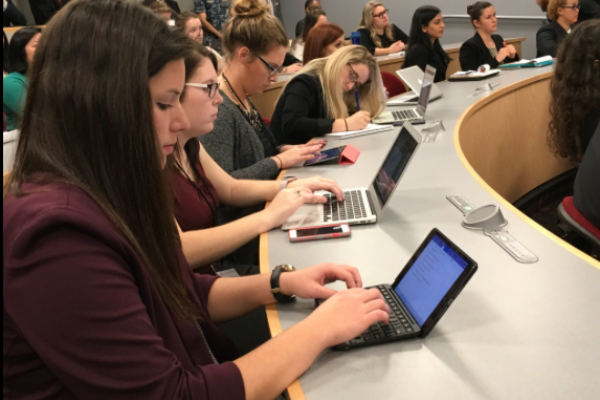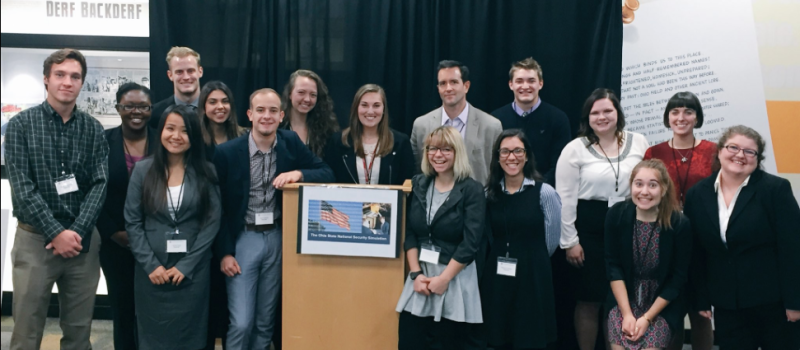Journalism Students Participate in Political Simulation with Law School

Journalism students took part in a political simulation with the Moritz College of Law to practice crisis communication on Nov. 18-19, 2016.
Students from across the School of Communication acted as journalists and press secretaries for the two-day event. They were able to collaborate in a real-time simulation of government leaders addressing national security issues. The simulation also included students from the Moritz College of Law, John Glenn School of Public Affairs and the Mershon Center for International Security Studies.
"I think the greatest gift this simulation provides is that we work with all different departments, from law, history, government and communication,” said Assistant Journalism Professor Nicole Kraft. “They all come into one [event]. It's the synergy of all of us working together that I think is the most beneficial for our students."
“This provides students the opportunity to bridge the gap between classroom learning and working as a professional. Learning by doing is the deepest kind of learning you can do because it allows you to see how issues are related to one another and allows you to see how policy issues interact with personality factors and organizational processes,” said Dakota Rudesill, Moritz assistant professor and the creator and director of the event.

The simulation included all three governmental branches, state and local governments, as well as full press corps and private sector entities. According to Rudesill, this shows students “the complexity of problems both in terms of the issues themselves, and the complexity of resolving them.”
"During the simulation, I wrote stories about the events that were taking place around the United States – more specifically the state of Washington,” said Ian Doherty, a third-year journalism and political science student. “I would go around to all of the acting-officials and ask them what was going on, and then write a brief article on the information that they gave me."
Though the current political climate may be quickly changing, Kraft said the benefits for students have not changed.
"The need to be fair, objective, and accountable for what you write [remains the same]. When you cover a topic, you're making a decision that is important for the public,” Kraft said. “We spend a lot of our time focusing on things that are minor, instead of focusing on what the bigger picture is, so that is what we are trying to teach our students."
"The simulation taught me how to prioritize information and write in a short amount of time. Nicole [Kraft] had asked media professionals to come in and help us if we needed it, and we could speak to them about their respective jobs," Doherty said. "Since this was just a simulation, and had no real-world implications, it allowed me to make mistakes and not have to worry about the repercussions."
Article written by student Amanda Gruenhagen
